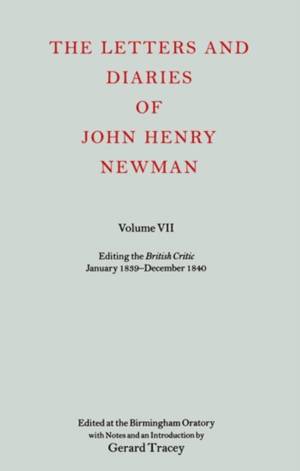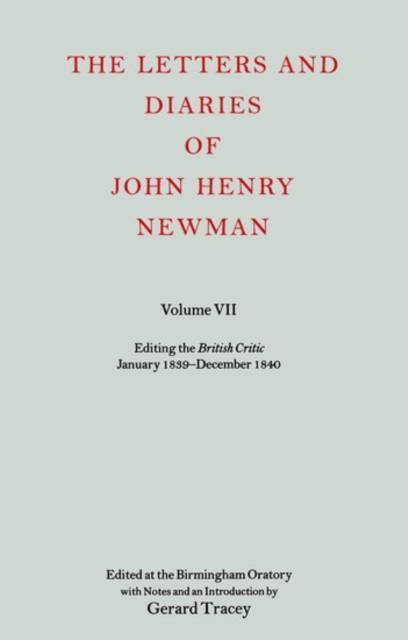
- Afhalen na 1 uur in een winkel met voorraad
- Gratis thuislevering in België vanaf € 30
- Ruim aanbod met 7 miljoen producten
- Afhalen na 1 uur in een winkel met voorraad
- Gratis thuislevering in België vanaf € 30
- Ruim aanbod met 7 miljoen producten
Zoeken
Omschrijving
John Henry Newman (1801-90) was at the height of his position in the Church of England in 1839, when he first began to feel doubts concerning the claims of the Anglican Church. His editorship of the British Critic took up a great deal of time, but he was greatly encouraged by its increasing sales. Uncomfortable with his position as Vicar of St Mary's, Oxford Newman was considering giving up the position at the end of 1840. This volume covers a significant period in Newman's life, with a background of social ferment and political tension: the Corn Laws, Chartism, an inexperienced monarch, weak government, and foreign problems. Contemporary writers such as Carlyle attracted Newman's attention, and university reform was a live issue.
Specificaties
Betrokkenen
- Auteur(s):
- Uitgeverij:
Inhoud
- Aantal bladzijden:
- 576
- Taal:
- Engels
- Reeks:
Eigenschappen
- Productcode (EAN):
- 9780199204021
- Verschijningsdatum:
- 29/06/1995
- Uitvoering:
- Hardcover
- Formaat:
- Genaaid
- Afmetingen:
- 156 mm x 234 mm
- Gewicht:
- 1089 g

Alleen bij Standaard Boekhandel
+ 356 punten op je klantenkaart van Standaard Boekhandel
Beoordelingen
We publiceren alleen reviews die voldoen aan de voorwaarden voor reviews. Bekijk onze voorwaarden voor reviews.











